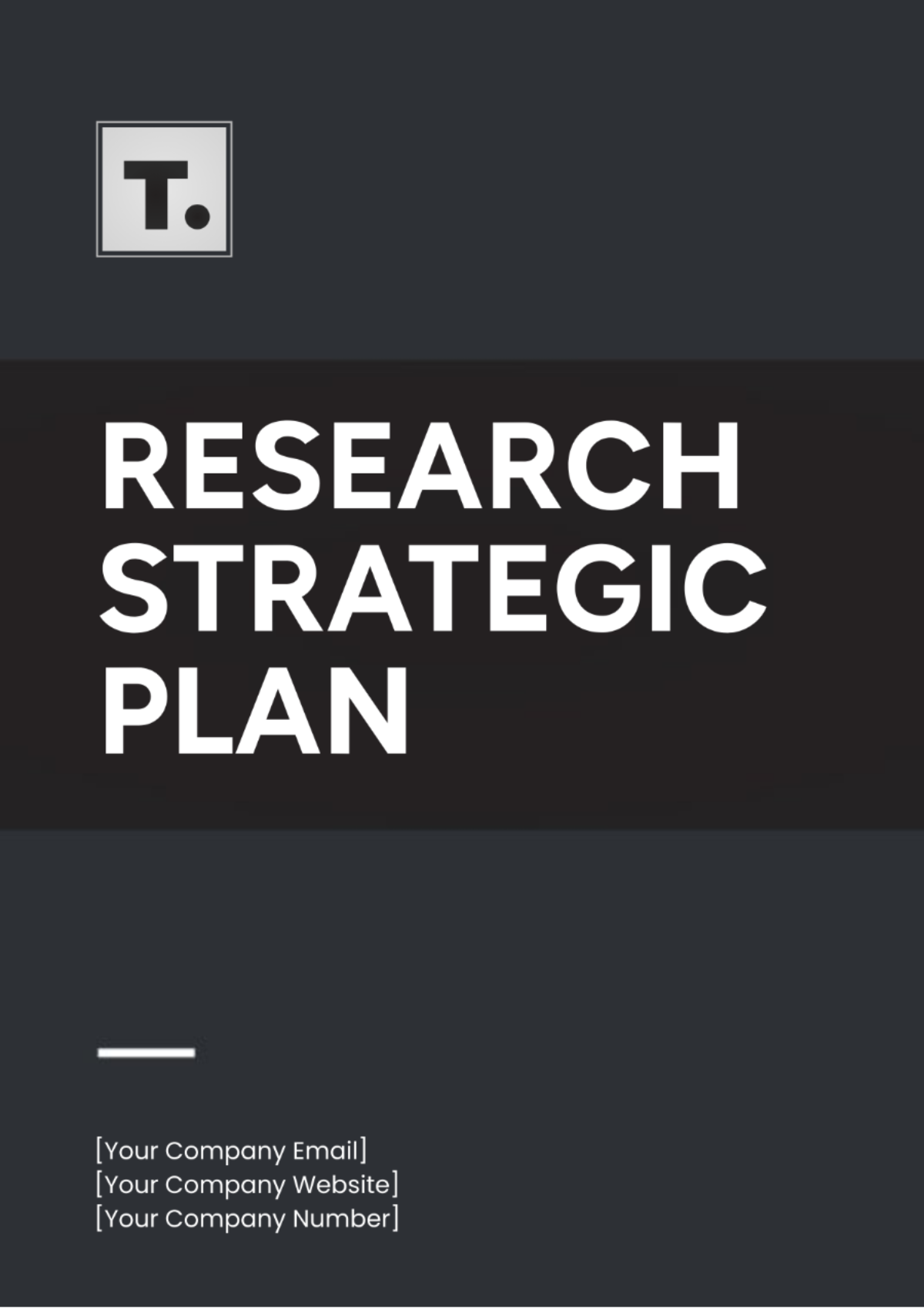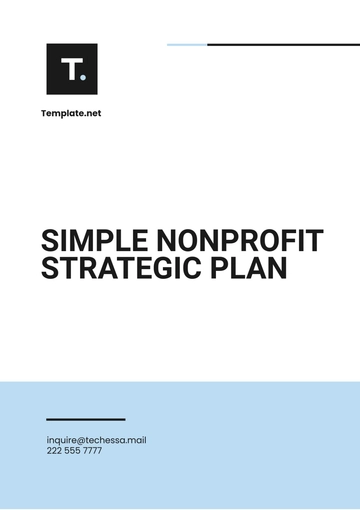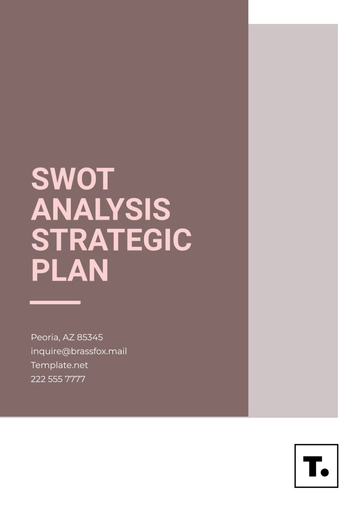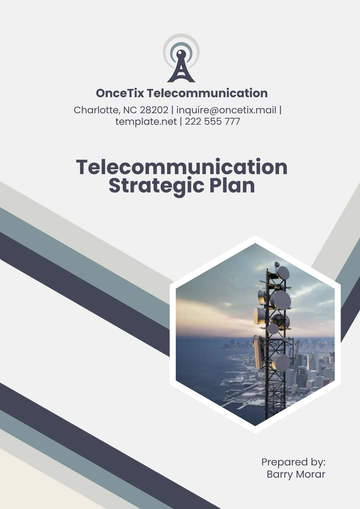Free Research Strategic Plan

I. Executive Summary
In the rapidly evolving landscape of renewable energy technologies, it is imperative for [YOUR COMPANY NAME] to establish a clear strategic direction to guide future research endeavors. This Research Strategic Plan outlines our vision, goals, and objectives for advancing knowledge and innovation in the field of solar energy in the coming decades.
II. Introduction
[YOUR COMPANY NAME] is committed to fostering cutting-edge research that addresses key challenges and opportunities in renewable energy. By aligning our research efforts with strategic priorities, we aim to drive impactful outcomes that benefit our stakeholders and contribute to global progress toward sustainable energy solutions.
III. Vision Statement
Our vision is to be a leader in solar energy research, driving innovation, and shaping the future of renewable energy through pioneering research initiatives. We envision a world where solar energy plays a central role in meeting the growing demand for clean, affordable, and reliable energy sources, thereby mitigating climate change and promoting sustainable development globally.
IV. Mission Statement
The mission of [YOUR COMPANY NAME]'s research program is to conduct high-impact research that advances knowledge, addresses societal needs, and fuels innovation in solar energy technologies. We are dedicated to conducting innovative research that leads to breakthroughs in solar energy efficiency, cost-effectiveness, and scalability, ultimately accelerating the deployment of solar technologies worldwide.
V. Strategic Goals
1. Advance Knowledge:
Conduct research that expands the frontiers of knowledge in solar energy technologies and related fields. We aim to deepen our understanding of solar energy conversion mechanisms, materials science, and system design principles, driving continuous innovation in solar technology development.
2. Promote Innovation:
Foster a culture of innovation by translating research findings into practical solutions and technological advancements in solar energy. We seek to develop novel solar energy technologies, products, and services that address market needs, improve energy efficiency, and enhance grid integration capabilities.
3. Address Societal Needs:
Address pressing societal challenges such as energy access, climate change, and environmental sustainability through interdisciplinary research collaborations and community engagement. We strive to develop solutions that benefit marginalized communities, promote energy equity, and contribute to sustainable development goals.
4. Enhance Collaboration:
Foster collaboration and partnerships with industry, academia, government agencies, and other stakeholders to leverage collective expertise and resources for accelerating solar energy research and deployment. We aim to amplify the impact of our research efforts, facilitate technology transfer, and promote knowledge exchange across sectors and disciplines.
VI. Objectives
1. Identify Emerging Trends:
Monitor and analyze emerging trends, technologies, and challenges in solar energy to inform research priorities and strategies. We can anticipate future research needs, identify promising research directions, and seize opportunities for innovation and collaboration.
2. Invest in Talent:
Recruit and retain top-tier researchers, scientists, and experts in key areas of solar energy research, including photovoltaics, solar thermal, energy storage, and grid integration. We aim to cultivate a diverse and skilled research workforce capable of tackling complex challenges and driving research excellence in solar energy.
3. Build Research Infrastructure:
Invest in state-of-the-art research facilities, equipment, and resources to support innovative research initiatives and experimental testing of solar energy technologies. We empower researchers to conduct groundbreaking experiments, validate theoretical models, and accelerate technology commercialization efforts.
4. Secure Funding:
Diversify funding sources and secure grants, sponsorships, and partnerships to support research projects aligned with strategic priorities and long-term sustainability. We can enhance our financial resilience, expand our research portfolio, and amplify our impact in solar energy research.
VII. Action Plan
1. Conduct Research Landscape Analysis:
Assess the current state of research in solar energy, including technological advancements, market trends, policy frameworks, and international collaborations. We can identify gaps, opportunities, and priority areas for future research investment and strategic intervention.
2. Establish a Research Advisory Committee:
Form a multidisciplinary advisory committee comprising experts from academia, industry, and government to provide guidance and oversight on research priorities, project selection, and resource allocation. We ensure alignment with stakeholder needs, industry trends, and societal challenges.
3. Develop Research Roadmap:
Define a comprehensive research roadmap outlining key focus areas, research questions, milestones, and timelines for research projects, ensuring alignment with strategic goals and emerging opportunities in solar energy. We provide researchers, funders, and stakeholders with a shared vision and framework for advancing solar energy research and innovation.
4. Promote Interdisciplinary Collaboration:
Facilitate interdisciplinary collaboration and knowledge exchange through seminars, workshops, and collaborative research projects involving multiple disciplines such as materials science, engineering, economics, policy studies, and social sciences.
VIII. Monitoring and Evaluation
1. Performance Metrics:
Define key performance indicators (KPIs) to measure the impact and effectiveness of research initiatives, including publications, patents, technology transfers, industry collaborations, and societal benefits. We can track progress, evaluate outcomes, and assess the return on investment of research activities.
2. Regular Review and Assessment:
Conduct regular reviews and assessments of research projects to evaluate progress, identify challenges, and make informed decisions for optimizing resource allocation and research priorities. We adapt to changing circumstances, seize emerging opportunities, and enhance the effectiveness and efficiency of our research efforts.
IX. Communication and Dissemination
1. Knowledge Sharing:
Promote knowledge sharing and dissemination of research findings through peer-reviewed publications, technical reports, conference presentations, and open-access repositories to maximize the impact and visibility of research outcomes. We contribute to the collective body of knowledge and inspire further innovation in solar energy research.
2. Engagement with Stakeholders:
Engage with stakeholders, including industry partners, policymakers, regulatory agencies, NGOs, and the public, to communicate research outcomes, solicit feedback, and foster collaborations for translating research into real-world applications and policy solutions.
X. Conclusion
By implementing this Research Strategic Plan, [YOUR COMPANY NAME] aims to position itself as a leading research institution in solar energy, driving innovation, and contributing to the global transition towards a sustainable and low-carbon energy future. Through strategic planning, interdisciplinary collaboration, and stakeholder engagement, we aspire to catalyze transformative change, accelerate technology adoption, and create positive societal impact.
- 100% Customizable, free editor
- Access 1 Million+ Templates, photo’s & graphics
- Download or share as a template
- Click and replace photos, graphics, text, backgrounds
- Resize, crop, AI write & more
- Access advanced editor
Unlock the potential of your research endeavors with the Research Strategic Plan Template from Template.net. This meticulously designed and customizable template empowers you to strategize with precision. Seamlessly edit and tailor your plan to fit your unique goals and objectives using our intuitive AI Editor Tool. Elevate your research game effortlessly today!





























